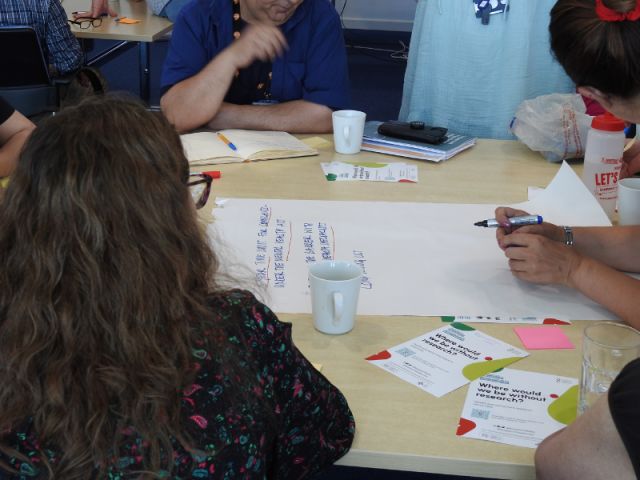
Clarifying eligibility for public involvement in health and social care research
18 November
Involvement of people and communities in health and care research is vital to making research more relevant, meaningful and impactful.
But sometimes, challenges can arise when people try to take part without meeting the intended eligibility requirements. This can lead to misunderstandings, reduce the effectiveness of involvement and more importantly risk undermining the trust in public involvement for researchers and compromise the integrity of research
Health and Care Research Wales, in collaboration with the National Institute for Health and Care Research (NIHR), Chief Scientist Office (CSO) and Health and Social Care Northern Ireland, has created new guidance for recognising and addressing ineligible public involvement in health and social care research. A working group of public contributors, research and clinical staff supported the creation of the guidance.
The guidance provides:
- A clear definition of ineligible public involvement and why it matters
- Practical advice on how to recognise potential ineligible involvement
- Steps for addressing issues sensitively and fairly, whether due to misunderstanding or misrepresentation
- Strategies to safeguard against ineligible involvement through better recruitment, onboarding and communication
The aim of the guidance is not to exclude people unnecessarily, but to support researchers, public involvement leads and contributors in ensuring the right people are involved, in the right way, for the right reasons.
By clarifying what eligibility means in different contexts, the guidance can help research teams protect the integrity of their work, strengthen relationships with public contributors and ensure that involvement remains inclusive and impactful.
See the full guidance.
To keep up with latest research developments and updates on public involvement in research, subscribe to the Health and Care Research Wales newsletter.
- Frequently asked questions
Why do we need guidance on “ineligible” public involvement?
In rare cases, people may become involved in a way that doesn’t match the requirements of a particular involvement role. This can happen through misunderstanding (where expectations weren’t clear) or misrepresentation (where someone deliberately mis-states their experience). The guidance helps researchers respond to these situations sensitively, respectfully and consistently.
Does this mean some people are being excluded from public involvement?
Not at all. Public involvement remains inclusive and central to health and social care research. The guidance is not about putting up barriers, it is about making sure involvement is fair, meaningful and appropriate for everyone included.
Will this stop people with different experiences, communication needs or confidence levels from being involved?
No. The guidance specifically warns against making assumptions and stresses the importance of understanding individual needs. Many indicators (such as not speaking up in a meeting) could have other explanations, such as health reasons, language barriers or confidence. Researchers and involvement teams are encouraged to explore these fully before making any decision.
How will this affect current public contributors?
Most public involvement is positive and productive. This guidance does not change existing contributors’ roles. It simply offers research teams a framework to handle situations fairly if eligibility questions arise.
What happens if someone is found to be ineligible through misunderstanding?
The guidance recommends resolving the issue without blame and where possible signposting individuals to other suitable opportunities.
What happens in cases of misrepresentation?
If someone has clearly misrepresented themselves, researchers are advised to end the involvement respectfully and transparently to protect integrity of the research.